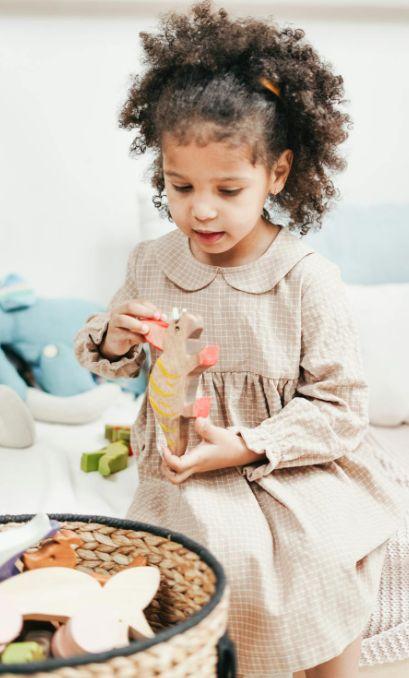

LEARNING THROUGH PLAY









Play is at the heart of childhood, shaping a child's ability to learn and grow. In nursery schools in UAE, play-based learning isn't just encouraged—it’s essential.
Simple activities like building blocks, role-playing, and storytelling lay the groundwork for communication, problem-solving, and motor skills.

The early years are critical for brain development, and play provides the perfect stimulation for young minds to explore and understand their world.



How Play Fuels Growth

Play is more than just fun—it supports learning in various ways:

● Cognitive Development: Through puzzles, imaginative games, and hands-on activities, children enhance their memory and problem-solving skills.
● Social and Emotional Growth: Play teaches children how to express emotions, share, and interact with others.
● Language Skills: Engaging in conversations during play improves vocabulary and listening skills.
● Physical Coordination: Running, jumping, and fine motor activities strengthen a child’s body and mind.
For example, stacking blocks teaches a child about balance and counting, while pretend play as a doctor or a teacher fosters communication and creativity.




Different Types Of Play

Children learn best when they are free to explore, but structured activities also play a crucial role:

● Free Play: Children engage in self-directed activities like drawing or playing with dolls.
● Guided Play: Parents or teachers facilitate learning through interactive activities such as storytelling.
● Structured Play: Games like puzzles, board games, and outdoor sports provide focused skill-building opportunities. A balanced combination of these types ensures children develop key life skills while keeping the process enjoyable.



Play In Early Education





Many KG1 schools in Dubai incorporate play into their teaching strategies, blending fun with foundational learning. Phonics games make reading engaging, hands-on math activities turn numbers into an adventure, and role-playing helps children develop confidence and teamwork
Schools that prioritize play-based learning often see improved student engagement, better academic performance, and stronger social skills.



Evolution Of Play In Later Education





As children grow, the nature of play changes, but its impact remains strong. In primary school, play becomes more structured, involving group projects, problem-solving challenges, and interactive learning games. This ensures that children continue to develop critical thinking, teamwork, and creativity.
Even in higher grades, play-based methods can enhance learning. Activities like debates, simulations, and hands-on science experiments make subjects more engaging and memorable. Integrating elements of play keeps students motivated and helps them retain information more effectively.




How Parents Can Support Learning Through Play


Simple, everyday activities can be powerful tools for development.
● Encourage Open-Ended play: Provide toys like building blocks, art supplies, and puzzles that allow children to explore and create freely. These activities enhance problem-solving and creativity.
● Engage in Interactive Storytelling: Reading books, making up stories, and acting out characters boost language skills and imagination.
● Incorporate Play into Daily Routines: Counting objects while cooking, sorting laundry by color, or singing educational songs make learning seamless and fun.
● Limit Screen Time: Encourage hands-on activities over passive entertainment to promote cognitive and social development.
● Join in the Play: Playing together strengthens bonds while modeling social skills, communication, and critical thinking.






By creating an environment where play is valued, parents help lay a strong foundation for their child’s lifelong learning and growth. Play is not just about having fun—it’s also a powerful tool for learning. From early experiences in childhood to structured lessons in secondary education schools, the principles of exploration, creativity, and hands-on learning continue to shape a child’s growth. When students are encouraged to think critically and engage actively, they develop essential life skills that prepare them for the future. By recognizing the value of play at every stage of education, we can foster a generation of confident, curious, and capable learners.









